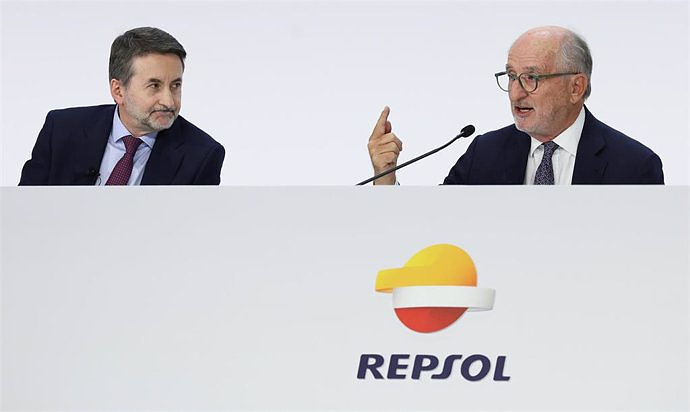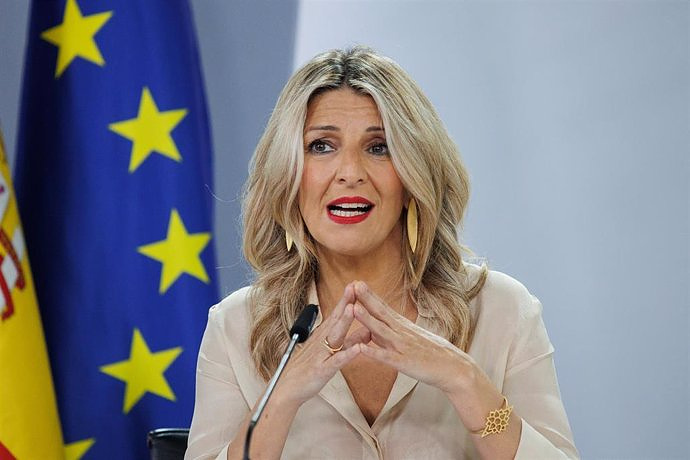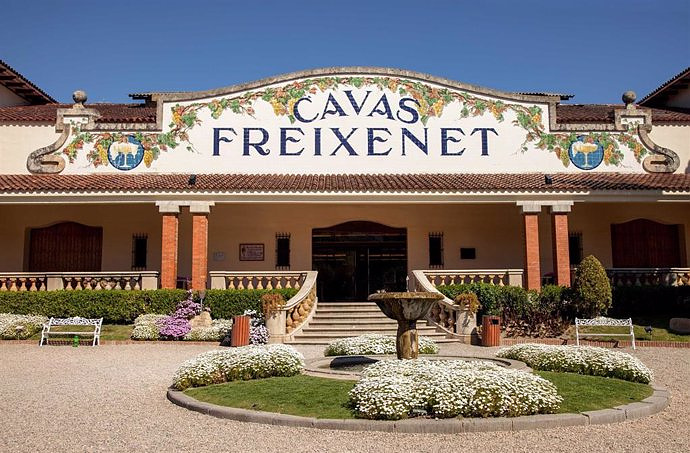The socialist Nacho Sánchez justifies the need for the State to defend itself with legal means in the face of such a rude attack on its sovereignty.
BRUSELAS, 27 Oct. (EUROPA PRESS) -
MEPs from the PSOE, PP, and Ciudadanos, together with experts in disinformation, have denounced this Thursday in the European Parliament the Russian "interference" in Spain during the Catalan independence process, in a session focused on the contacts of former president Carles Puigdemont's environment with people close to the Kremlin.
Within the framework of a session of the Commission on Foreign Interference of the European Parliament, the journalist of 'El Periódico de Catalunya' Jesús González Albalat and the researcher of the Institute for Statecraft in London Nicolás de Pedro have analyzed Puigdemont's contacts with Russian emissaries, supposedly close to Vladimir Putin, the day before he declared independence, now five years ago.
During the debate, from the PSOE, Nacho Sánchez Amor has insisted that Moscow's maneuvers go beyond mere disinformation since there was a "direct interference" facilitated by the "incredible" performance of Puigdemont's entourage.
"These sorcerer's apprentices opened the door to Putin's dark emissaries encouraging them to break up a country, a constitutional system and mortgage a hypothetical independent Catalonia," he defended. In this sense, the socialist has pointed out that "not even the most naive town councilor could claim that they did not know the consequences of this type of contact."
"This was not naive in any way, and justifies the need to defend democracies, and justifies the need to defend Spanish democracy with legal means in the face of such a rude attack on its sovereignty," he stated.
According to Nacho Sánchez, it was a "disproportionate desire to achieve political objectives at the cost of whatever was going out of the channels that until then the secessionists had used."
The PP MEP Javier Zarzalejos, for his part, has pointed to the Russian presence during the crisis in Catalonia with spies, contacts and widespread misinformation. "Russian interference has never reached such intensity and shamelessness as in the crisis caused by the Catalan secessionists," he said, stressing that people close to the Kremlin offered military and economic support and recognition of independence.
"Russia is still interested in supporting secessionist movements to defend the annexation of Crimea based on a right to decide. Spain is a priority for Russia," the PP representative summarized.
Maite Pagazaurtundua, from Ciudadanos, has stressed that data and studies are needed to learn the lesson, which is why she has asked that European research centers be commissioned to carry out an in-depth investigation of the ties between Catalan independence movement and Putin's environment.
In any case, he has criticized the "massive disinformation" that Russia put into circulation during the independence process with the intention of "breaking" public opinion, assuring that Moscow was seeking to generate "chaos" and "blood" in Catalonia.
The European Parliament has requested on two occasions that the investigations of Russian interference in the Catalan independence process be carried to the end, after journalistic reports that point to the presence of Russia at key moments of the crisis and the supposed military support that they offered envoys from the Kremlin in various contacts with Puigdemont's entourage.

 Exploring Cardano: Inner Workings and Advantages of this Cryptocurrency
Exploring Cardano: Inner Workings and Advantages of this Cryptocurrency Seville.- Economy.- Innova.- STSA inaugurates its new painting and sealing hangar in San Pablo, for 18 million
Seville.- Economy.- Innova.- STSA inaugurates its new painting and sealing hangar in San Pablo, for 18 million Innova.- More than 300 volunteers join the Andalucía Compromiso Digital network in one month to facilitate access to ICT
Innova.- More than 300 volunteers join the Andalucía Compromiso Digital network in one month to facilitate access to ICT Innova.-AMP.- Ayesa acquires 51% of Sadiel, which will create new technological engineering products and expand markets
Innova.-AMP.- Ayesa acquires 51% of Sadiel, which will create new technological engineering products and expand markets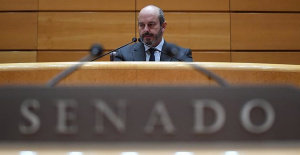 The amnesty faces its final stretch in the Senate with the question of whether it will be voted this week or after the Catalan elections.
The amnesty faces its final stretch in the Senate with the question of whether it will be voted this week or after the Catalan elections.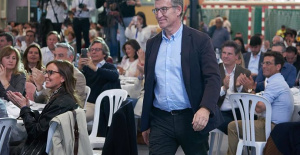 The PP will send to Moncloa the 1,136 letters from citizens with their real problems that it received in Sánchez's reflection
The PP will send to Moncloa the 1,136 letters from citizens with their real problems that it received in Sánchez's reflection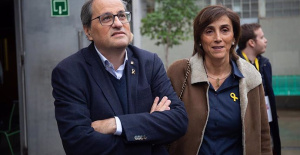 Carola Miró, wife of former president of the Generalitat Quim Torra, dies
Carola Miró, wife of former president of the Generalitat Quim Torra, dies 12M.- Díaz asks Sánchez to recognize the Palestinian State in the next Council of Ministers
12M.- Díaz asks Sánchez to recognize the Palestinian State in the next Council of Ministers How Blockchain in being used to shape the future
How Blockchain in being used to shape the future Not just BTC and ETH: Here Are Some More Interesting Coins Worth Focusing on
Not just BTC and ETH: Here Are Some More Interesting Coins Worth Focusing on A sensor system obtains the fingerprint of essential oils and detects if they have been adulterated
A sensor system obtains the fingerprint of essential oils and detects if they have been adulterated Faraday UPV presents the 'Origin' rocket to exceed 10 km of flight: "It is the beginning of the journey to space"
Faraday UPV presents the 'Origin' rocket to exceed 10 km of flight: "It is the beginning of the journey to space" The Generalitat calls for aid worth 4 million to promote innovation projects in municipalities
The Generalitat calls for aid worth 4 million to promote innovation projects in municipalities UPV students design an app that helps improve the ventilation of homes in the face of high temperatures
UPV students design an app that helps improve the ventilation of homes in the face of high temperatures A million people demonstrate in France against Macron's pension reform
A million people demonstrate in France against Macron's pension reform Russia launches several missiles against "critical infrastructure" in the city of Zaporizhia
Russia launches several missiles against "critical infrastructure" in the city of Zaporizhia A "procession" remembers the dead of the Calabria shipwreck as bodies continue to wash up on the shore
A "procession" remembers the dead of the Calabria shipwreck as bodies continue to wash up on the shore Prison sentences handed down for three prominent Hong Kong pro-democracy activists
Prison sentences handed down for three prominent Hong Kong pro-democracy activists ETH continues to leave trading platforms, Ethereum balance on exchanges lowest in 3 years
ETH continues to leave trading platforms, Ethereum balance on exchanges lowest in 3 years Investors invest $450 million in Consensys, Ethereum incubator now valued at $7 billion
Investors invest $450 million in Consensys, Ethereum incubator now valued at $7 billion Alchemy Integrates Ethereum L2 Product Starknet to Enhance Web3 Scalability at a Price 100x Lower Than L1 Fees
Alchemy Integrates Ethereum L2 Product Starknet to Enhance Web3 Scalability at a Price 100x Lower Than L1 Fees Mining Report: Bitcoin's Electricity Consumption Declines by 25% in Q1 2022
Mining Report: Bitcoin's Electricity Consumption Declines by 25% in Q1 2022 Oil-to-Bitcoin Mining Firm Crusoe Energy Systems Raised $505 Million
Oil-to-Bitcoin Mining Firm Crusoe Energy Systems Raised $505 Million Microbt reveals the latest Bitcoin mining rigs -- Machines produce up to 126 TH/s with custom 5nm chip design
Microbt reveals the latest Bitcoin mining rigs -- Machines produce up to 126 TH/s with custom 5nm chip design Bitcoin's Mining Difficulty Hits a Lifetime High, With More Than 90% of BTC Supply Issued
Bitcoin's Mining Difficulty Hits a Lifetime High, With More Than 90% of BTC Supply Issued The Biggest Movers are Near, EOS, and RUNE during Friday's Selloff
The Biggest Movers are Near, EOS, and RUNE during Friday's Selloff Global Markets Spooked by a Hawkish Fed and Covid, Stocks and Crypto Gain After Musk Buys Twitter
Global Markets Spooked by a Hawkish Fed and Covid, Stocks and Crypto Gain After Musk Buys Twitter Bitso to offset carbon emissions from the Trading Platform's ERC20, ETH, and BTC Transactions
Bitso to offset carbon emissions from the Trading Platform's ERC20, ETH, and BTC Transactions Draftkings Announces 2022 College Hoops NFT Selection for March Madness
Draftkings Announces 2022 College Hoops NFT Selection for March Madness
